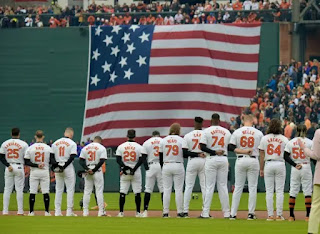In 1845, Henry David Thoreau moved to a self-built cottage by Walden Pond in Massachusetts. "I went to the woods because I wished to live deliberately, to front only the essential facts of life, and see if I could not learn what it had to teach, and not, when I came to die, discover that I had not lived." He would spend two years there and recorded his experience (compressed and presented as one year) in
Walden, discussing such matters as economy (building his own home), reading, sounds, solitude, farming, the pond, animals, and so on.
He concludes that "I left the woods for as good a reason as I went there. Perhaps it seemed to me that I had several more lives to live, and could not spare any more time for that one." "I learned this, at least, by my experiment; that if one advances confidently in the direction of his dreams, and endeavors to live the life which he has imagined, he will meet with a success unexpected in common hours."
---------------
Walden is a mixed bag. Thoreau's focus is on self-discovery/reliance, and (what he considers as) true independence. He rejects tradition and conformity, encouraging others to 'wake up' and think. He explores important topics like living simply, enjoying common tasks and things around you ("my life itself was become my amusement and never ceased to be novel."), listening, being aware, and the value of a quiet, peaceful life. I liked/agreed with some of his insights/conclusions, a handful of which mirror those in Ecclesiastes. So there is some value here.
There is also foolishness. Thoreau comes across as self-important and above everyone else. We're all idiots; he alone is thoughtful. He rejects elders ("I have lived some thirty years on this planet, and I have yet to hear the first syllable of valuable or even earnest advice from my seniors.") and company ("I find it wholesome to be alone the greater part of the time. To be in company, even with the best, is soon wearisome and dissipating . . . I never found the companion that was so companionable as solitude."). He considers one who is "thinking for himself and expressing his own opinion, a phenomenon so rare that I would any day walk ten miles to observe it . . ." and that "The mass of men lead lives of quiet desperation." (That last one might be true, but not for the reasons Thoreau thinks.) He forgets that we need God and others, and there is value in elders (his argument is self-defeating . . . we shouldn't listen to him, as he is our elder). There is a good deal of hubris and foolishness here, which is why I started skimming to move this along.
He taught me a new word:
excrementitious. I daresay it applies to portions of
Walden. Its value is drowned in error and pomposity. Perhaps I'm not reading it as thoreauly* as I ought, but I can't help but think of humorist Dave Barry's version of this event:
Meanwhile, culture was continuing to occur in some areas. In New England, for example, essayist Henry David Thoreau created an enduring masterpiece of American philosophical thought when, rejecting the stifling influences of civilization, he went off to live all alone on Walden Pond, where, after two years of an ascetic and highly introspective life, he was eaten by turtles.- Dave Barry, Dave Barry Slept Here
That would have been highly entertaining.
Rating: C-
*nyuk nyuk











































































